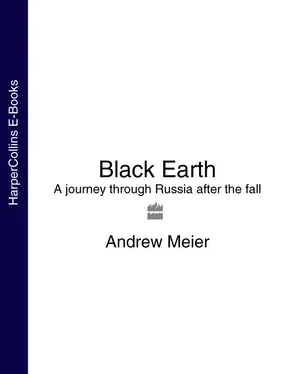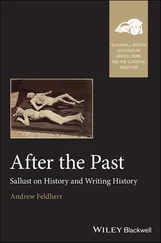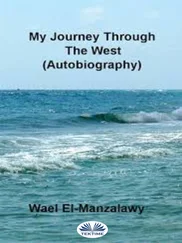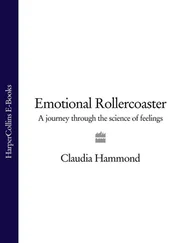THE SIBERIAN PIT BULL barked at Yura. “Turn off the car,” he instructed. Issa politely tried to ply his documents, but the soldier would have none of it. “Forget your papers, old man,” he shouted. Shvedov, seeing the worst coming, proffered his press card from the Motherland . The OMON officer from Irkutsk had never heard of the honored Soviet monthly, which Shvedov insisted still existed, even though its readership could no longer afford to subscribe. “Stay in the car,” the officer yelled at the insistent bald man in front of him, before turning his sights on me.
“Get out,” he then commanded me.
One thing I’d learned about checkpoints long ago was it was best not to get out – ever. By now we had been stopped so often a routine had formed. A soldier would approach, profanities would rain, we would offer documents, another soldier would lean closer, we would wait, and then, the formalities exhausted, we would be waved through. Silence, I had learned, was the best policy. But this fellow wanted me out of the UAZik. He yelled again. He wanted to frisk the car, search its innards, rummage our bags. I tried to demur. I offered to help.
Undeterred, he opened the door and, with his Kalashnikov, nudged me aside. He lifted the seats, opened the metal canisters underneath, and, maintaining his silence, rifled our bags. When he was done, he grunted and jumped from the UAZik. Yura sat frozen until Issa ordered him, through his teeth, to turn the key, turn the goddamned key. As we moved on, I watched the soldier retreat to his roadside squalor, half a tent strung to a tree and a broken chair posted in the hot sun. With his back to us, he flicked his left hand sharply through the air, as if to swat an insect. We were beneath him.
We drove on, numb to everything but the sun, the dust, the bumps. Issa had stopped singing. Only the roar of the helicopters overhead accompanied us, and then, suddenly, as we turned off the road, the silence returned. We had entered a village without discernible life. No cars, no people. The first trees were tall, bare stumps, their branches shorn long ago. Then yards, all untended, their green veils grown too thick or too thin. Everywhere the branches, heavy with fruit, hung low. The season had come, but no one was picking. Everywhere there was only the weight of the still air. We had arrived.
I had marked Aldy, this Chechen village, on the map of Chechnya I had bought on a Moscow street corner months earlier. Aldy was the destination I’d set myself and shared with no one when I began the journey to the south. Something horrific, unspeakable, had happened here five months before. On a cold Saturday in midwinter, Russian forces had committed one of the bloodiest of the Chechnya massacres in this village. No one will ever know the true body count, but in Aldy on February 5, 2000, Russian soldiers had summarily executed at least sixty civilians.
A half circle of a dozen Chechen men, some lean and strong, others gray and bent over, huddled in a caucus as we drove in. Yura parked the UAZik across the road from them. They did not move from the lonely shade. One man, young, fit, and prominently armed, gripped the Kalashnikov on his shoulder. He wore full camouflage and tiny sunglasses. He could have been on either side, a fighter loyal to the rebels or a Chechen police officer in the Russians’ employ. Issa didn’t like the look of the sunglasses.
I got out, alone, and walked toward the men. One of the older men was separating leaves from a thin branch in his hands. As I approached, the young Chechen stepped forward. In his hands was the AK-47, shiny and new. Strapped across his chest was a leather bandolier, bulging with clips, grenades, and a pair of wooden-handled knives. A century and a half earlier Alexandre Dumas père had noted the Chechens’ love of weaponry during a romantic romp across the Caucasus in 1858, a time when the Chechens struggled against the tsar. “All these mountain fighters are fanatically brave,” wrote the creator of The Three Musketeers , “and whatever money they acquire is spent on weapons. A Chechen … may be literally in rags, but his sword, dagger and gun are of the finest quality.” 3
I told the armed man that I was a journalist, an American. I’d come to talk to people who were here the day “they” came. We did not shake hands, but he nodded and shifted the rifle from his hands to his shoulder. “Walk with me,” he said. The sunglasses, their gold frame catching the sun, covered his eyes. Slowly we crossed the dirt road and headed away from the jeep, away from my guides, away from the Chechen men standing against the wall of metal gates and fences.
Oddly, a calm enveloped me. I kept walking, afraid to lose pace. Three options formed in my mind. This fellow is taking you around the corner, just out of sight of your companions, where you’ll be summarily executed; or he’s intent on kidnapping you, leading you to a house nearby to be sold on down the road from there; or he’s bringing you to see someone – an elder? – who will listen to your best introduction and then either bless your presence in the village or send you away.
I had come to Aldy prepared. By March an amateur video, forty-six minutes long, made by the villagers had surfaced in Moscow. It featured corpses and widows. I had interviewed the lucky ones; the survivors who’d made it out. I had studied the reports, detailed and methodical, of the human rights activists. But I wanted to learn more than the extent of the massacre. I wanted to understand the motivation behind the horror. Aldy was not, as an American diplomat, a man of high rank and expertise in Russia, had tried to convince me, “just another case of Russian heavy-handedness.” It was a conspicuous illustration, in miniature, of Russia’s military onslaught in Chechnya.
The young Chechen led me on. But even before we reached the gate of the house, a wave of relief hit, and my shoulders settled. I knew where we were going. I had memorized a hand-drawn map of Aldy’s long streets. We were calling on the man the fortunate ones had told me to see first, Shamkhan, the village mullah.
Конец ознакомительного фрагмента.
Текст предоставлен ООО «ЛитРес».
Прочитайте эту книгу целиком, купив полную легальную версию на ЛитРес.
Безопасно оплатить книгу можно банковской картой Visa, MasterCard, Maestro, со счета мобильного телефона, с платежного терминала, в салоне МТС или Связной, через PayPal, WebMoney, Яндекс.Деньги, QIWI Кошелек, бонусными картами или другим удобным Вам способом.












